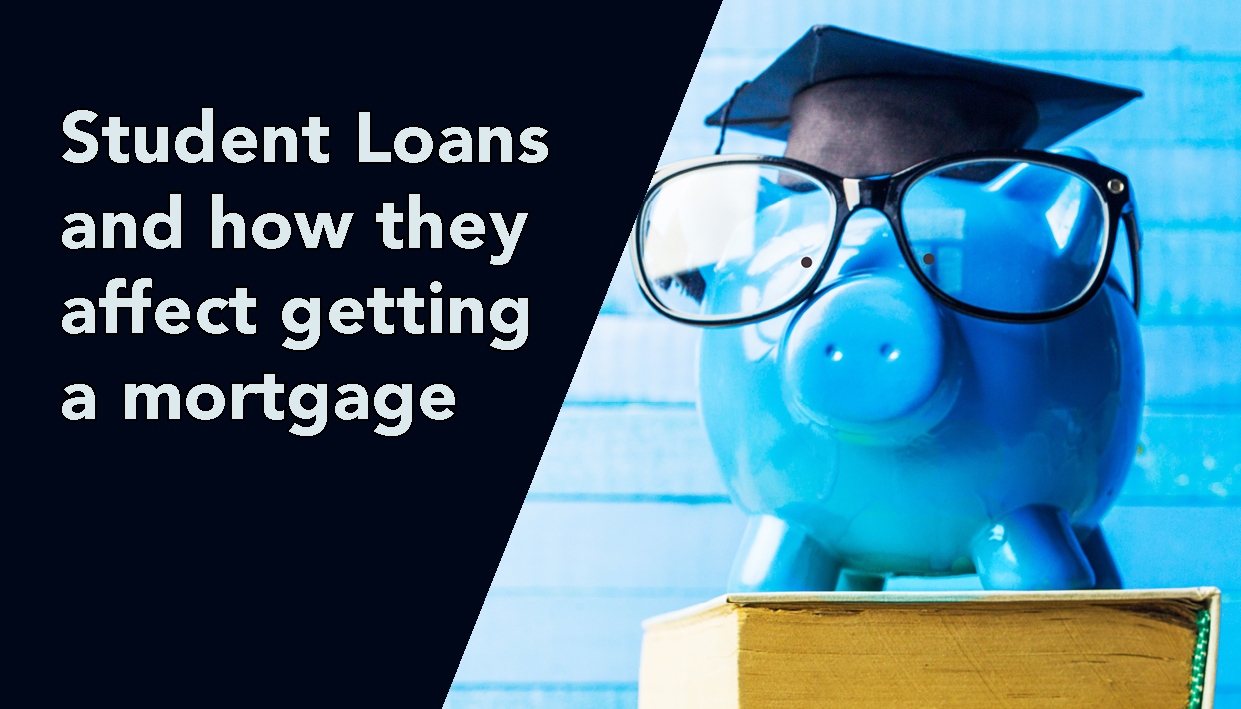Student Loans and How They Affect Getting a Mortgage

First Home Buyers are often nervous about the size of their Student Loan and how it will affect their chance of getting a mortgage.
The Scenario
You’ve studied hard for many years and, to get there, you borrowed on your Student Loan for courses, books, and some money to live on. Now you have a deposit for a house … and a Student Loan of four times that! How is your Student Loan going to affect your chances of getting a mortgage?
Home Loan Affordability
When applying for a bank mortgage, people usually face one of two hurdles:
- Income Hurdle (you don’t have enough income to cover all expenses), or
- Deposit Hurdle (you don’t have enough deposit)
For more information on home loan affordability, check out our blog: How do banks calculate home loan affordability?
| Talk to your Mortgage Adviser to find out any potential hurdles you might face when applying for a mortgage. By understanding your personal circumstances, they will also be able to advise you on strategies to meet the bank’s home loan affordability equation. |
The Income Hurdle
When banks calculate how much you can afford, they will deduct your monthly Student Loan repayment from your monthly income.
Student Loans reduce your income because you need to start making repayments to IRD once you earn over $22,828 a year before tax (that’s $439 a week before tax). Your minimum repayment amount is 12% of your salary once you earn more than $22,8282 per year.
The good news …
It actually doesn’t matter to the banks how large your Student Loan is. The bank’s affordability calculation will be the same whether you have $3,000 or $300,000 remaining. Why? Because your Student Loan repayments will always be 12% of your income and no more. The government can’t call your loan in and the payments are made automatically. It’s even interest-free, as long as you stay in the country. It is as close to good debt as you can debt. However, they would care if you had a $300,000 credit card debt (obviously), but not a Student Loan.
So don’t be embarrassed about the size of your Student Loan as this does not come into the bank’s affordability equation. The only figure banks are interested in is how much income you have after deducting your monthly Student Loan repayment amount.
| If you are hitting the Income Hurdle and only have a small Student Loan left, consider paying off that Student Loan. Sure, you’re paying off an Interest Free loan which isn’t awesome, but you’ll get a 12% income boost which might get you what you need … increasing your borrowing capacity by tens of thousands of dollars. And in this market, every dollar counts! |
Reducing Debt
Consider your current financial situation and whether you have other debts or expenses that require immediate attention. If you have high-interest debt, such as credit card balances or personal loans, it may be wiser to pay that off first before focusing on your Student Loan which is generally interest-free.
High-interest debt can quickly spiral out of control if left unaddressed, so it’s essential to prioritise these debts to avoid accumulating more significant financial burdens. For more information on reducing debt, check out our blog 6 Tips For Getting On Top Of A Debt Mountain.
Savings and Investment Goals
Depending on your individual circumstances and priorities, here are some key considerations:
- Balancing Student Loan repayment and Investing: Finding the right balance between paying off your student loan and long-term financial goals is crucial. With New Zealand’s 0% interest rate for student loans, it may make sense to invest your money in opportunities that offer a higher rate of return.
- Kiwisaver and Employer-Matching Contributions: Contributing to KiwiSaver with employer-matching contributions can be a valuable long-term investment. Employer-matching contributions essentially represent free money, so taking full advantage of this benefit is often a wise choice.
- Reducing Debt: Consider your current financial situation and whether you have other debts or expenses that require immediate attention. If you have high-interest debt, such as credit card balances or personal loans, it may be wiser to pay that off first before focusing on your Student Loan. High-interest debt can quickly spiral out of control if left unaddressed, so it’s essential to prioritise these debts to avoid accumulating more significant financial burdens.
- Emergency Fund: Building an emergency fund is a fundamental step in financial planning. It provides a safety net for unexpected expenses or job loss. While it's crucial to have an emergency fund in place, the size of this fund can vary depending on your financial situation. Having a few months' worth of living expenses saved up is a good rule of thumb, but it might be adjusted based on your specific circumstances.
- Seek Professional Advice: Personal finance is a complex matter, and it's often beneficial to consult a financial advisor or planner. They can provide personalised guidance based on your unique financial situation, goals, and risk tolerance.
To identify any potential hurdles before applying for a home loan, book a FREE 15-minute chat with our First Home Buyer’s Club Adviser, Dustin.



